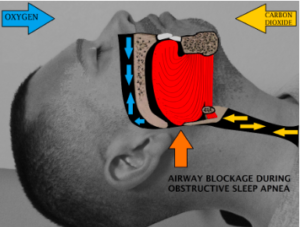Snoring can be a frustrating and disruptive issue for both the snorer and their partner. It can lead to restless nights, irritability, and even health problems if left untreated. However, there are a few things that you can do to address your partner’s snoring and improve your sleep quality.
Talk to your partner about their snoring
- The first step in addressing your partner’s snoring is to talk to them about it. Many people are not aware that they snore, or they may not understand how disruptive it can be to their partner’s sleep. Choose a time when you are both relaxed and not feeling angry or frustrated about the situation. Approach the conversation in a supportive and non-judgmental way, and let your partner know that you care about their well-being and want to help them find a solution.
Encourage your partner to see a doctor
2. Snoring can be a symptom of a more serious health issue, such as sleep apnea, which requires medical attention. Encourage your partner to see a doctor to rule out any underlying health issues. A doctor may also be able to provide treatment options for snoring, such as a continuous positive airway pressure (CPAP) machine or a dental appliance.
Help your partner make lifestyle changes
3. There are certain lifestyle factors that can contribute to snoring, such as being overweight, smoking, and consuming alcohol before bedtime. Encourage your partner to make healthy lifestyle changes to reduce their snoring, such as losing weight, quitting smoking, and avoiding alcohol before bed.
Invest in a good mattress and pillows
4. A good mattress and pillows can help improve your sleep quality and reduce snoring. Look for a mattress that provides adequate support for your body and pillows that keep your head and neck in a comfortable position.
Use white noise or earplugs
5. If your partner’s snoring is particularly loud or disruptive, consider using white noise or earplugs to drown out the sound. White noise machines can provide a soothing background noise that can help you fall asleep and stay asleep, while earplugs can block out the sound of snoring.
Try positional therapy
6. Positional therapy involves changing your sleeping position to reduce snoring. If your partner tends to snore more when sleeping on their back, encourage them to sleep on their side instead. There are also special pillows and devices that can help keep your partner in a side-sleeping position throughout the night.
Consider anti-snoring devices
7. There are several anti-snoring devices on the market that can help reduce snoring, such as the mouth tape, nasal strips, oral appliances, and chin straps. Mouth tapes work by encouraging healthier nasal breathing, nasal strips work by opening up the nasal passages, while oral appliances and chin straps help keep the airway open during sleep.
Use a humidifier
8. Dry air can irritate the throat and nasal passages, leading to snoring. Using a humidifier can help to keep the air moist and reduce snoring. Be sure to clean the humidifier regularly to prevent the growth of bacteria and mould.
Try sleeping in separate rooms
9. While it may not be the ideal solution, sleeping in separate rooms can be an effective way to deal with snoring. This can help to ensure that both partners get a good night’s sleep and prevent any resentment from building up over time.
Get enough sleep
10. Finally, make sure that you are getting enough sleep yourself. Lack of sleep can make you more sensitive to your partner’s snoring and make it more difficult to cope with. Make sure that you are practising good sleep hygiene, such as sticking to a regular sleep schedule, avoiding caffeine and alcohol before bedtime, and creating a relaxing sleep environment.
In conclusion, snoring can be a challenging issue to deal with, but there are several things that you can do to address it and improve your sleep quality. Talk to your partner about their snoring, encourage them to see a doctor, make lifestyle changes, invest in a good mattress and pillows, use white noise or earplugs, try positional therapy, consider anti-snoring devices, use a humidifier, and make sure that you are getting enough sleep yourself – even if it means sleeping in a separate room. By working together, you can find a solution that works for both of you and enjoy restful, peaceful nights.







